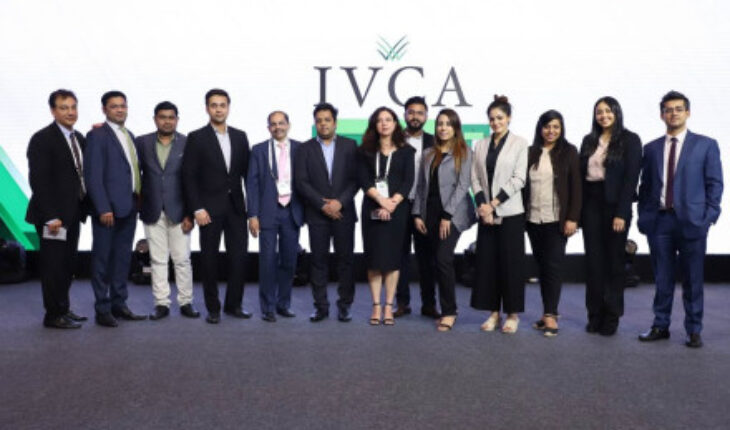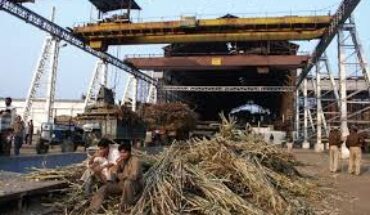Mumbai: India’s growing annual improvement in energy growth continues to play a key role in growth of GDP, where the underlying economy is important and locking down people constrains the consumers – especially during the COIVID-19 period , where the poor were left with a lot of debt and the rich with a lot of their own money.
“India is still a lower-middle income economy+ and getting risk capital early here – which matters more than in the USA – accelerates growth as lots of minor startups need to scale up,” Neelkanth Mishra, Managing Director, Co-Head of Equity Strategy, Asia Pacific and Head of India Securities Research, Credit Suisse, said in his keynote address on “A Resilient India in a Turbulent World” during a two-day IVCA Conclave 2023 held in Mumbai recently.
Noting that India’s ‘long-standing’ weakness in manufacturing may have turned a corner, he emphasized the cyclical revival in real estate, export boost to manufacturing, rise in global share and increasing government tax collection with high tax collection likely to provide more space in FY24 alongside continuing global headwinds and BoP pressures impacting growth.
“Concern on BoP has shifted from energy to weak capital flows, and domestic flows are larger than foreign flow since 2016. Equity is expensive and keeping FIIs away as India is more expensive than the rest of the world. Global markets are assuming that the worst is over and interest rates will fall,” Mishra said, adding “Asset prices have gone up and real estate prices globally saw a sharp uptick during Covid-19, while India’s real estate is recovering after a 10-year downcycle.”
In a panel discussion on “Climate Investing: Leading the way for the world,’ the moderator Anjali Bansal, Founder, Avaana Capital, emphasized that +while over one Trillion dollars investment is needed to address ‘Climate Change,’ India is an investment opportunity — for everything in the world — with its whole spectrum being public policy-led and as a huge market for climate investments.
Other speakers called for ‘genuine decarbonisation,” energy mix change from coal to gas, innovations and investment strategies, while also noting that India’s future lay in climate technology and innovations.
Urging technology and traditional industry to work together, Karan Mohla, General Partner, B Capital, highlighted the need for corporates and technology to work ‘hand-in-hand’, and take into consideration the scale at which innovation could be applied in the ‘real world’ with support of traditional industries. “India’s ecosystem has developed in the last few years with focus on innovative use of agritech etc, where technology will play a big role.”
“India’s climate opportunity highlights energy demand and the next 20 years will see doubling of energy consumption,” Dhanpal Jhaveri, Vice-Chairman, Everstone Group and CEO, Eversource Capital, said, adding “India needs to find ways to invest in climate space while making profits. The next five years will be the most interesting for all of us.”
Describing the environment climate change as a +multi-Trillion dollar+ opportunity for the future, Cate Ambrose, CEO and Board Member, GPCA, said investors like “Canadian Pension Fund,” Sovereign Funds etc are “thinking decades into the future to put their large-scale funds to work for decades to come. There is need to see energy transition and fund managers, besides educating LPs.”
”$100 trillion would be needed to be captured for the strategy in dealing with Climate Change,” said Vikram Raju, Managing Director and Head of Climate Investing – Private Credit & Equity, Morgan Stanley.
“The USA is a +laggard+ in dealing with climate change, while India has begun shifting goalposts in this regard,” said Dhruba Purkayastha, India Director, Climate Policy Initiative & Director, USICEF.
Moderator Anjali Bansal recalled how she noticed at the recent G20 meet various groups looking at climate change and sustainability.
Another panel discussion on: “Trends and Strategies for PE investing in India” highlighted experienced private equity fund managers sharing their experiences across multiple fund deployments on ‘Investing Strategies’; their learnings from how the strategies have evolved from when they invested through their first fund to what it is now; how macro and micro-economic factors have changed the way they choose their companies; and recent trends in PE investments and outlook for 2023.
“India seems more attractive due to the size of its economy and breadth of play across its sectors; Maturing of the ecosystem which was shallow earlier; Strong entrepreneurial culture etc, will see a lot more sustainable growth,” were some of the Panel’s reactions.
Highlighting “focus on exits when you can, and Invest in companies you can exit,” Shivani Bhasin Sachdeva, Founder/CEO, India Alternatives Investments Advisors, said that Pre-Covid India witnessed 80 billion in exits, but 36 billion in exits in 2021.
About “Change being the Only Constant,” she said trends and changes were happening fast and will collide and change the global economy. “2030 will witness more global wealth owned by women and more computers than humans, besides global consumption being driven by the Western consumer.”
Another panelist remarked that “there are seven situations we lost money in; A) excitement in ecoboom; weak returns in capital; lack of time; leverage eating into equity returns; B) Investing against technology tide (overestimating technology change as a lot can change in 5-7 years due to incremental changes tending to flow in another direction); when you invest in weaker investments, you may hit ‘air pockets’ or ‘downcycle.”
Describing ESG as being five years old and the world evolving itself in this regard, Sanjay Gujral, Chief Business Officer, Everstone Group, said “Equity management has gone way beyond ESG and investing in India and Asia means you are creating jobs. ‘Climate Action’ is the 3rd key lever and with the first year of investment being the “Pathway to Net Zero,” one can monitor and share with our LPs to make it happen.”
Noting that “ESG will mature” and that “every investment need not have a label,” Manish Kejriwal, Founder/Managing Partner, Kedaraa Capital, said “One thing we don’t talk at panels is about +institutionalizing Change and Culture.”
A +rapidfire+ question round of the panelists on “what would be interesting in technology over the next few years” drew various reactions like: “Destruction; Climate; Financial services; FemTech and Women’s Issues.”






